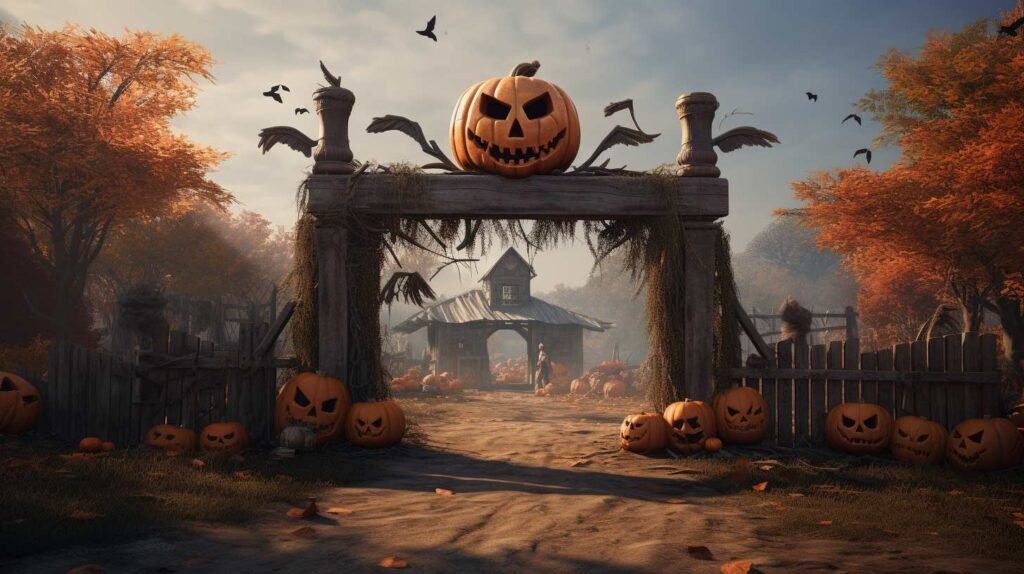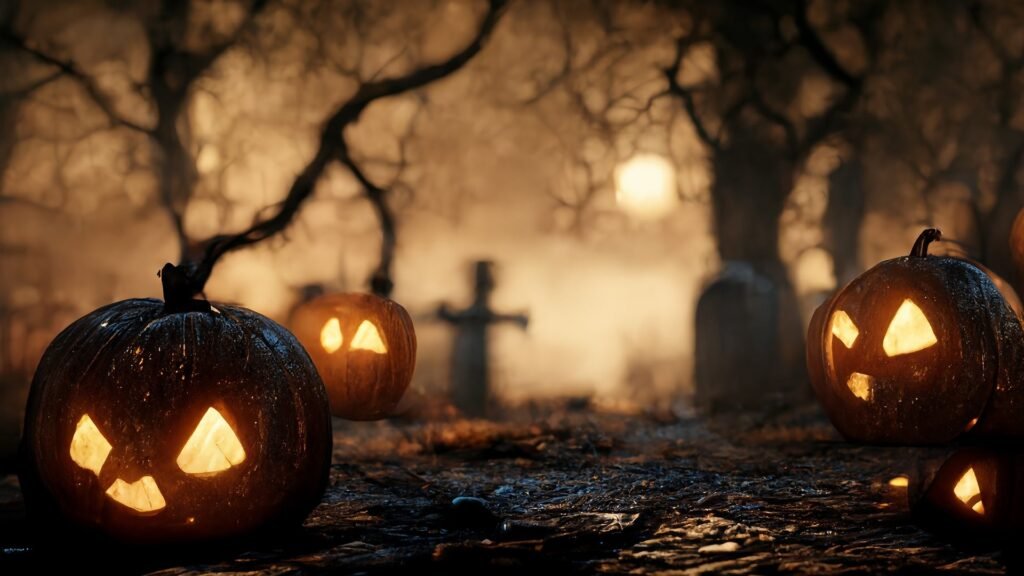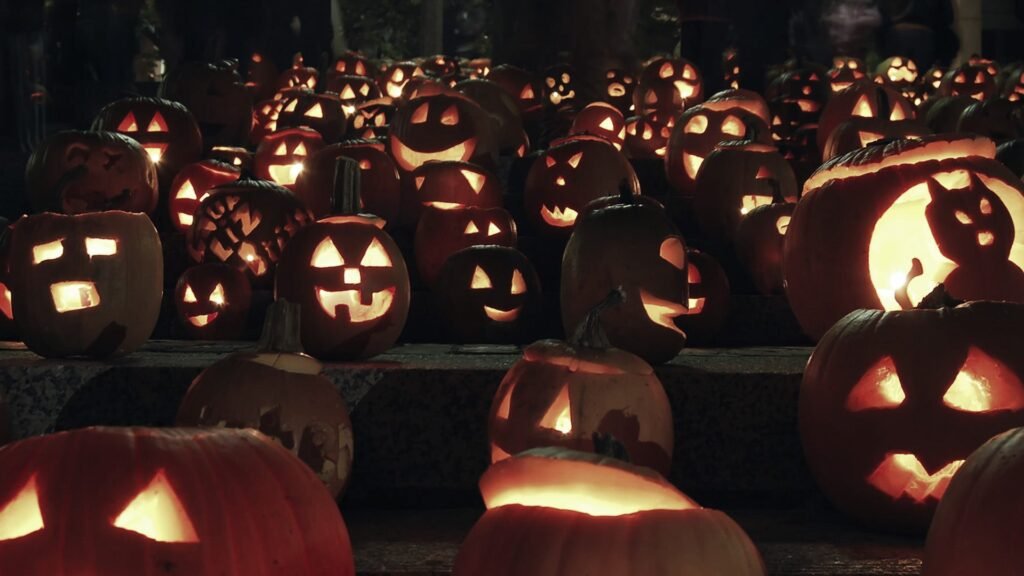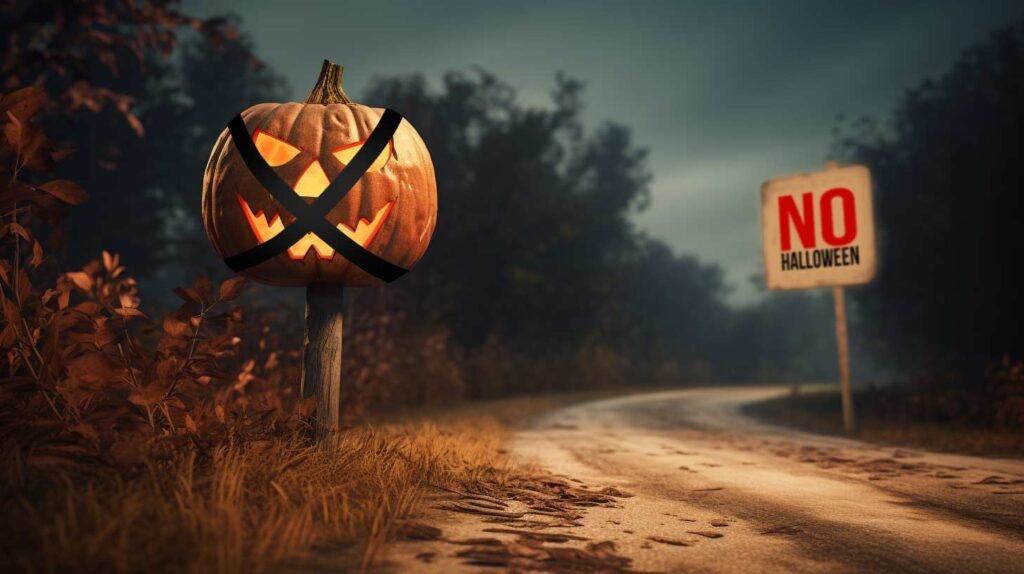Ever wondered where Halloween is more than just a scare—it’s actually Banned Halloween? Picture countries where the iconic pumpkins and ghostly costumes aren’t just frowned upon—they’re outright illegal. We’re peeling back the shroud on nations that have banished Halloween from their calendars, and the reasons are as shocking as a midnight apparition. Fasten your seatbelts; this eerie expedition will leave you gasping for more!
Where does Halloween comes from?
Halloween, originally known as All Hallows’ Eve, traces its roots back to ancient Celtic festivals like Samhain, which celebrated the end of the harvest season. It was believed that on this night, the boundary between the living and the dead became blurred. Over time, the tradition was adapted by Christian practices and later commercialized, becoming the Halloween we know today. Primarily celebrated in the United States, Canada, and the United Kingdom, the holiday involves trick-or-treating, carving pumpkins, and donning costumes to ward off ghosts.

The Global Footprint: Halloween’s Expansion Beyond American Soil
Initially rooted in American culture, Halloween has remarkably evolved beyond its original borders to morph into a worldwide phenomenon. Notably, countries as varied as Japan, France, and Germany, along with those deeply entrenched in ancient Celtic traditions, have warmly welcomed the spooky holiday. Furthermore, Sociologist Carrie, who specializes in the anthropology of celebrations, astutely observes, “It’s no longer merely an American trend; it has blossomed into a global extravaganza that captivates both the young and the adventurous. In essence, the entire world is hopping on the Halloween bandwagon!”
Countries Where Halloween is Outright Banned or Discouraged
The Middle Eastern Stance
Saudi Arabia
In Saudi Arabia, Halloween is not just discouraged; it’s outright banned. The government considers it to be “haram” or forbidden according to Islamic law. Anyone caught celebrating could face severe penalties, including fines and imprisonment.
Iran
Similarly, in Iran, Halloween is viewed as a Western cultural invasion that contradicts Islamic teachings. The government has issued warnings against the celebration of Halloween, and schools are prohibited from hosting any related activities.

The Southeast Asian Perspective
Malaysia
In Malaysia, Halloween is often frowned upon, especially among the Muslim majority. The government has cautioned against celebrating Halloween, stating that it could lead to “deviationist activities,” which are not in line with Islamic beliefs.
Indonesia
Interestingly, Indonesia, which holds the distinction of being the world’s largest Muslim-majority country, takes a cautious approach to Halloween. While the government hasn’t gone as far as to officially ban the holiday, it has, nonetheless, voiced concerns. Specifically, authorities worry that Halloween festivities could potentially clash with or overshadow the country’s own rich tapestry of cultural and religious celebrations.

The South Asian View
India
In India, Halloween is not officially banned, but it’s not widely celebrated either. The country has its own plethora of festivals, and Halloween is often seen as a cultural mismatch. Some conservative groups have voiced concerns that celebrating Halloween could dilute local traditions.
Pakistan
In Pakistan, Halloween is generally considered to be against Islamic principles. While there’s no official ban, many schools and public institutions discourage participation in Halloween activities.
Nations That Haven’t Banned Halloween, But Aren’t Rolling Out the Welcome Mat
The Asian Perspective
Mongolia
In Mongolia, Halloween had a brief moment of acceptance. However, the government, wary of cultural dilution amid rapid modernization, has banned the holiday in schools. The ban reflects a broader concern about Western influence overshadowing Mongolian traditions.
China
In China, Halloween is overshadowed by the Hungry Ghost Festival, a deeply-rooted tradition where ancestral spirits are honored. The Chinese government also discourages Halloween celebrations as part of its policy to promote traditional Chinese festivals.

The Latin American Viewpoint
Costa Rica
Costa Rica’s October 31st is a day for celebrating indigenous culture, specifically through the National Day of the Masquerades. This is a form of cultural preservation and a stand against the colonization of their traditions by foreign holidays like Halloween.
Brazil
Intriguingly, Brazil stands apart with its own vibrant folklore and deeply-rooted traditions. Specifically, Dia das Bruxas emerges as a nationalistic counterpoint, effectively challenging the American-centric narrative of Halloween. Rather than embracing ghosts and goblins, this unique day is dedicated to celebrating Brazil’s own local myths and legends. For instance, the holiday prominently features the mythical figure of Saci, a cornerstone of Brazilian folklore. In this way, Dia das Bruxas serves as a compelling testament to Brazil’s rich cultural tapestry.
Rather than embracing ghosts and goblins, this unique day is dedicated to celebrating Brazil’s own local myths and legends.
The European Landscape
Russia
In Russia, Halloween has become a subject of heated debate. The Orthodox Church and the government have expressed concerns that the holiday could lead to the spread of occult practices, thereby posing a threat to Russian cultural and religious identity.
Portugal
In Portugal, Halloween is overshadowed by Dia de Todos los Santos on November 1st. This tradition involves families visiting cemeteries to clean the graves of their loved ones, a ritual that is deeply ingrained in Portuguese culture.
Explore more Bizarre and Spooky Festivals around the world.

Africa’s Singular Rejection
Rwanda
Rwanda stands as a unique example of outright refusal. A government decree explicitly states that the Rwandan populace must “preserve and appreciate their own culture,” thereby banning Halloween. This is part of a broader initiative to protect Rwandan traditions from Western influence.
The story of Halloween’s international journey is a multi-layered narrative of cultural dynamics, religious beliefs, and national identities. While some countries have embraced the holiday, modifying it to align with their own cultural narratives, others have resisted or outright banned it. But one thing remains certain: Halloween, like a persistent phantom, refuses to fade away. For those eager to keep the Halloween spirit aflame, explore our exclusive list of Halloween Video Games!

